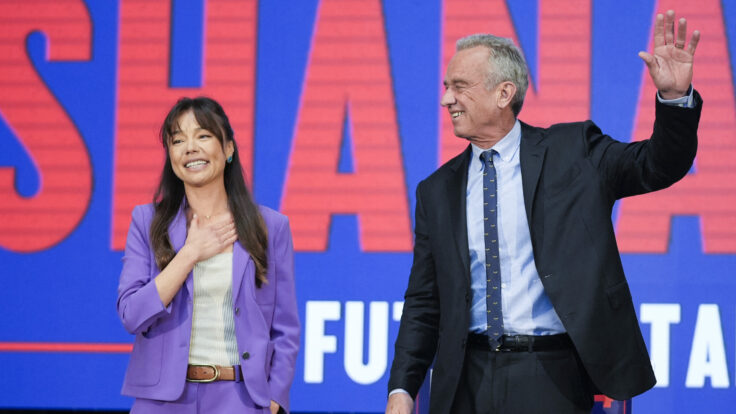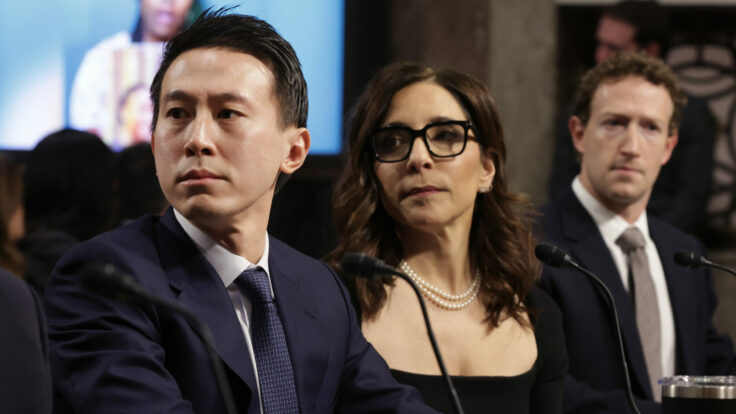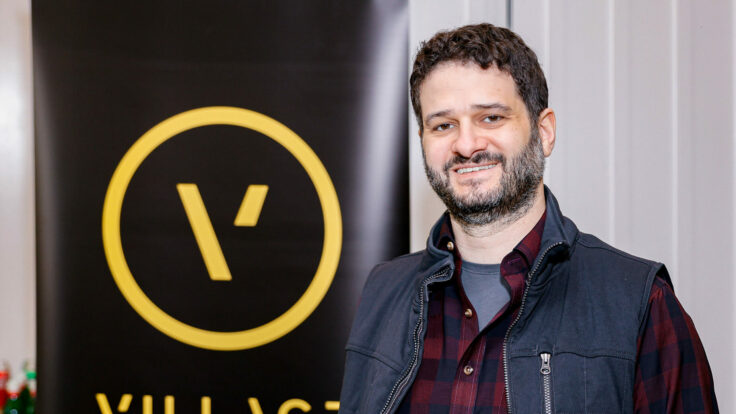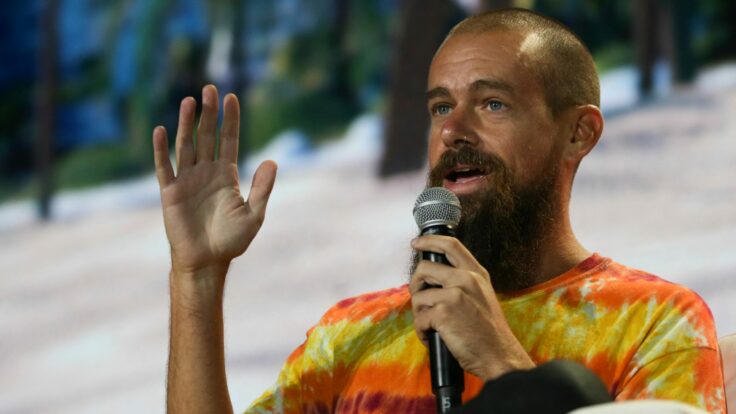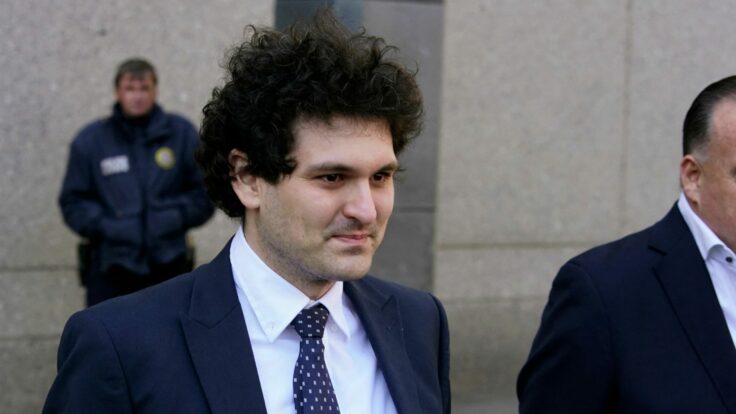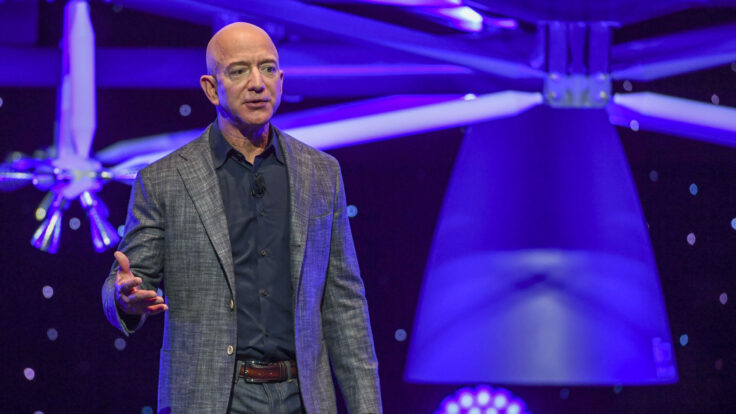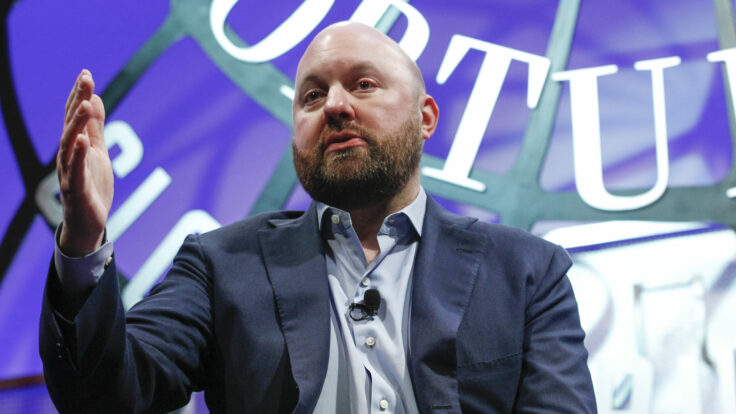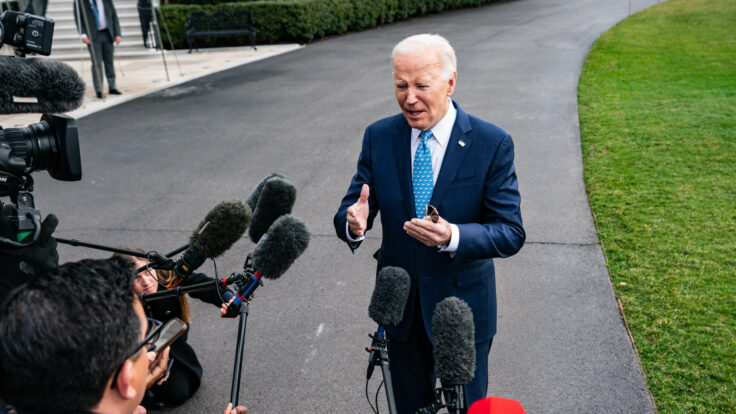Jeff Bezos has been the defining business figure of the modern era. And today, as he ascends from C.E.O. to executive chairman of Amazon, he is quietly positioning himself to become the era’s defining philanthropic figure, too.
That’s hardly the conventional wisdom, however. Bezos had an underwhelming record in serious charity before about 2017, when he became the wealthiest person in the world amid a lingering national debate about economic inequality. Most of his non-Amazon attention was publicly bestowed upon his ownership of Blue Origin and The Washington Post, two mission-driven companies which Bezos often framed in the lingua franca of philanthropy—Blue Origin, he has said, is “the most important work I’m doing”—even if they were actually for-profit enterprises. When it came to real nonprofits, he was criticized for not following the credo of established philanthropists (like, eventually, his ex-wife, MacKenzie Scott)who generally espoused the belief that billionaires should write checks to solve society’s biggest and most pressing concerns, regardless of market forces or concerns about profitability.
Bezos’s profit-minded philosophy suggests that philanthropy has long been too narrowly defined. According to this line of thought, monumental and history-defining challenges like space exploration can’t be met by adding another zero to the check. The purest distillation of this argument came from Sean Parker in an iconic essaysix years ago, encouraging tech billionaires to “hack” charity. In the piece, Parker characterized parts of the lumbering philanthropy-industrial complex as “essentially taking on the worst characteristics of government.” Other technology billionaires—the types who set up LLCs for their charitable work precisely so they can invest in for-profit companies—generally agree, embracing the magic of markets to give away a fortune produced by the same wizardry.
Bezos, whose net worth recently again eclipsed $200 billion, is dedicating his life to this vision. Two weeks after stepping out of the C.E.O. chair, he is embarking on a Blue Origin trip into low-Earth orbit—a literal venture that could endanger his life, and that he could never have taken while leading one of the world’s largest public companies. Not surprisingly, Bezos’ much-publicized voyage has also excelled on business terms: he is placing himself on par in the space wars with Elon Musk, despite Blue Origin lagging SpaceX by years.
It’s easy to dismiss Bezos’ plans, announced in 2019, to colonize space, beginning with the moon. But he is signaling that this endeavor will define his legacy as much as Amazon, itself. He sells about $1 billion worth of stock a year to finance Blue Origin, and I imagine that rate will double or triple over the next few years. Along the way, he’ll offer the biggest test to date that the for-profit sector is the best way to burnish your philanthropic legacy and mold the world in your image.
Outside of Blue Origin, Bezos has several more traditional philanthropic projects to his name, though the timing and staging of the announcements has sometimes seemed choreographed and under duress. Much of that work has also felt comparatively traditional, like the $2 billion he has set aside for reducing homelessness. I imagine Bezos would agree with all of this if it didn’t require downplaying his own investments.
The largest of these projects is the Bezos Earth Fund, the blockbuster $10 billion climate-change fund that he set up last year. Much of the $800 million that was awarded last fall went to super-charge two Big Green charities that were already a favorite of the donor class: World Resources Institute and ClimateWorks. (A few months after handing them huge checks, Bezos hired the directors of both organizations, Andrew Steer and Charlotte Pera, respectively, to work for him full-time. Other donors couldn’t have loved that.) The environmentalist reaction to both grants was a collective shrug.
Bezos is taking a bigger risk with his Montessori preschool network, Bezos Academy, though it is unclear how the project is faring. Led by a former Amazon executive, staffed heavily by former Amazon hands, and guided by a desire to bring Amazon management principles (like “Disagree and Commit”) to educating 3-year-olds, Bezos Academy has quietly been expanding outside of his home state of Washington to Miami, Orlando, Houston and Dallas, per new job postings.
The $1 billion Bezos schools effort has always struck me as surprisingly, and maybe disturbingly, low profile—there’s a lot of curiosity about the Bezos Academy in education circles, but there’s been virtually no reporting to date on how the real-world experiment is performing outside of some gauzy Instagram videos that the Amazon founder posted. Remember how much was written about Mark Zuckerberg’s unsuccessful $100 million gift to Newark schools? Dale Russakoff wrote a whole book on the topic. This is ten times as much money, with ten times less scrutiny. There will be no rocket launch for the Bezos Academy on which we can judge its success or failure.
On some level, Bezos’ interest in education reform is riskier than what he will attempt later this month, when he straps himself to a glorified bomb. The only thing scarier than traveling into space is attempting to introduce new ideas and practices to early education—a veritable third-rail of the philanthropic world that has bedeviled not only Zuckerberg, but also Bill Gates and plenty of others. Bezos has a defining opportunity, with his $200 billion war chest and “Always Day One” mentality, to prove that for-profit do-gooderism can save the planet while pushing humanity off-world. The real danger, for Bezos, is meddling in more terrestrial affairs.






